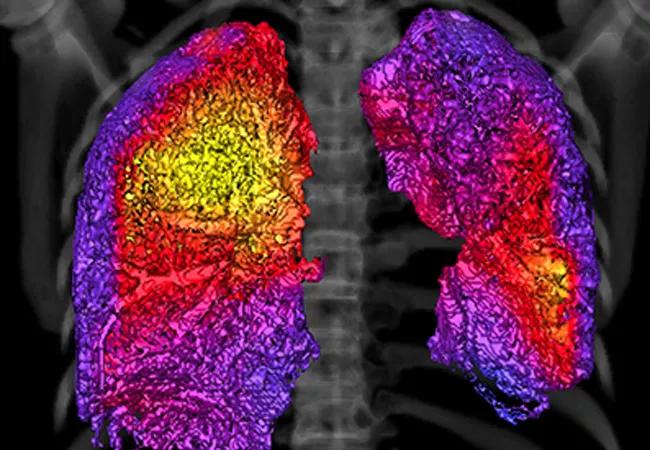Targeting specific airways instead of overall airflow

Cleveland Clinic Lerner Research Institute was recently awarded funding from the National Institutes of Health (NIH) to purchase a leading-edge preclinical scanner from 4Dx Limited, a Melbourne-based medical technology company, to investigate the causes and treatment of asthma. Cleveland Clinic becomes only the second institution in the world to own a 4Dx preclinical scanner (joining Cedars-Sinai Medical Center, Los Angeles), and the first to use it in the study of asthma. This new technology will push forward Cleveland Clinic’s asthma program, which is already one of the strongest and most funded in the country.
Advertisement
Cleveland Clinic is a non-profit academic medical center. Advertising on our site helps support our mission. We do not endorse non-Cleveland Clinic products or services. Policy
Asthma is a heterogeneous group of diseases. The specific airways that are affected vary from patient to patient and between types of asthma. Although researchers and clinicians have long known that asthma presents differently in different airways, the disease is diagnosed using a breath test that measures the average air flow in all airways. While this diagnostic approach is accurate, it cannot identify subregions of the disease process.
Kewal Asosingh, PhD, principal investigator for the NIH grant, believes the preclinical scanner — which works by analyzing X-ray images to measure air flow throughout each of the lungs’ airways — may transform how asthma severity is evaluated. “It will help physicians monitor the specific airways involved in asthma accurately, which will enable us to understand and treat the disease in a more targeted manner,” he says.
The team at Lerner Research Institute will use the scanner to test in preclinical models drugs currently approved to manage and treat asthma, as well as new compounds developed at Cleveland Clinic. They will measure the effects that new and existing drugs have on specific airways. They may find, for example, that drugs that improve overall airflow might not actually target the diseased airways, and vice versa.
With purchase of the preclinical scanner, Cleveland Clinic will be in the unique position to conduct preclinical assessment of new drugs and validate results in clinical studies using 4Dx’s clinical product (software imaging processing that analyzes airways visualized using standard clinical scanners). This will allow Cleveland Clinic scientists and physicians to conduct translational analyses in patients, helping to accelerate the important path to new clinical discoveries.
Advertisement
“As the incidence of asthma is on the rise, it is critically important that we can accurately diagnose and treat the disease to the best of our ability. The 4Dx scanner is the key to both,” adds Dr. Asosingh.
Dr. Asosingh is staff scientist in the Department of Inflammation and Immunity and Scientific Director of Flow Cytometry at Cleveland Clinic.
Advertisement
Advertisement

First full characterization of kidney microbiome unlocks potential to prevent kidney stones

Researchers identify potential path to retaining chemo sensitivity

Large-scale joint study links elevated TMAO blood levels and chronic kidney disease risk over time

Investigators are developing a deep learning model to predict health outcomes in ICUs.

Preclinical work promises large-scale data with minimal bias to inform development of clinical tests

Cleveland Clinic researchers pursue answers on basic science and clinical fronts

Study suggests sex-specific pathways show potential for sex-specific therapeutic approaches

Cleveland Clinic launches Quantum Innovation Catalyzer Program to help start-up companies access advanced research technology